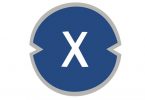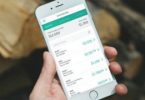As human capital continues to rise worldwide and supply chains gain international footprints, companies are increasing looking for ways to have cross-border collaboration in terms of employment and freelance work. However, current payroll processes create regulatory and compliance hurdles and also come with significant currency exchange fees when companies look to hire abroad.
One company, Grain is looking to revolutionize the current payroll process by moving it to a blockchain-enabled platform that reduces operational costs and third-party vendor costs as well as currency exchange fees.
Token
The Grain token (GRAIN) will be implemented using the Ethereum ERC20. GRAIN holders generate value from the token in a single distinct way: the payment of labor contracts facilitated on Grain’s protocol. The premise of the GRAIN token is based on its utility to fuel the smart contracts implemented on Grain’s blockchain – GRAIN “is able to facilitate transactions for work in a safe and transparent manner.
According to the white paper, 35% of the funds raised will go towards growing the development team (tech HR), 35% towards marketing and business development, 20% towards reserves for unforeseen costs, 7% towards operational costs, 2% towards third-party legal and security providers, with the remainder of the pot (2%) going towards token sale costs.
The GRAIN tokens are valued at 0.02778 EURO per 1 GRAIN. The total amount of tokens to be sold is capped at 3,600,000,000 which equals 30,000,000 euros.
The company intends to list the GRAIN tokens on major crypto exchanges by Q2 2018.
Team
Grain’s core team consists of three senior professionals, two of which have backgrounds at Microsoft and the other with a background in blockchain consultancy. As compared with the majority of ICOs, the team has a light staff and is lacking a strong development team.
The company’s CEO & President, Onno Hektor is a former Senior Director for Microsoft. While Onno’s Microsoft background is great, there’s a red flag concerning his current roles. According to Onno’s LinkedIn, he’s currently the co-founder of NG Group, tao.company, Atlantic Crossings, and FleXentral. Onno is also currently the Executive Vice President of EMEA at Sitrion. The company’s Board Member, Andre Bonvanie also has a background at Microsoft. Yet, the red flags concerning Andre’s current roles are consistent with Onno’s. The company’s Blockchain Strategist, Erik Koster is currently the CEO of Global Screen.
The company’s advisory board consists of Temme Sikkema (a professor at the University of Groningen), Roberto de Freitas (an actuarial risk management specialist), and René Hendriks (a serial entrepreneur of several early-stage start-ups).
Verdict
Grain presents a highly speculative buying opportunity for investors interested in long-term capital appreciation.
While two of the members of Grain’s core team have a Microsoft background, their time is currently invested elsewhere (multiple positions at various companies). Another red flag is that the company doesn’t have a dedicated development team – how can you launch a blockchain company without a team of developers and engineers? The company’s advisory board is essentially a joke – they don’t bring anything of value to the table.
The concept behind having a blockchain-based platform to pay employees and freelancers is great. However, the cautionary tape surrounding Grain as a company and specifically its ICO is worrisome. Tread cautiously if you’re considering an investment.
Risks
- Grain suffers from a high amount of technology risk. From a bare bones perspective, Grain doesn’t have a dedicated development and engineering team. The company has stated that it won’t have a team of 10 developers until Q4 2018 – meaning there’s a significant drag on product development. Additionally, 30 million euros is too much money for a company that has yet to fully develop a product and go through beta testing. -2.5
- While the concept of blockchain technology underpinning payroll for employees and freelancers is sound, it’s likely that this product is too early for the market. Blockchain technology is still in its early-stages in terms of enterprise adoption. Many of the large companies in the EEA (including Microsoft) are developing their own private Ethereum-based blockchains for internal use. It’s likely that if they wanted a product like Grain, it would be cheaper in the long-run for them to develop this concept internally. -2.5
- With Grain’s core team juggling a variety of positions at various companies, execution risk runs extremely high. Launching a start-up (especially in the blockchain space) is time consuming and requires complete devotion. Without devotion and focused effort it’s likely this company will only reach limited scale. -2
Growth Opportunity
- The movement towards global, distributed teams is a positive trend that Grain may benefit from. As companies continue to embrace resource arbitrage and reap the economic benefits that come with it, a centralized third-party provider for both payroll and freelancer payments will be needed. +4
- Since two members of Grain’s core team have worked at Microsoft in the past, the company has the potential to engage in a Microsoft partnership. Microsoft has been a strong backer of ethereum-based solutions for enterprises (as seen by its current internal efforts and cloud offerings). If Grain is able to secure a Microsoft partnership, it would open the doors for acceptance by a variety of smaller SMBs and other large enterprises. +3
- Provided the company is able to develop a fully-fledged product, Grain would likely become a potential acquisition opportunity by indirect competitors, think: Upwork, freelancer.com, Toptal, etc. Upwork acquired Elance in the past and will likely want to move to the blockchain over time – an acquisition would be the easiest way to implement this. +3
Disposition
Moving payroll for employees and payments for freelancers to the blockchain is an exciting idea that will likely take hold over the next five years. However, Grain isn’t likely to be the company leading this revolutionary change. There are too many risks (including: technology, adoptiopn, and execution) surrounding this company.
If Grain had a dedicated team and was raising a 3-5 million euro Series A through the traditional VC route, then maybe this company would have a chance. However, the company is raising a 30 million euro ICO for which a token isn’t even warranted yet (there’s no functioning product).
Tread lightly if you’re considering investing.
Against this backdrop, we believe that a score of 3.0 out of 10 is warranted.
Investment Details
- Type: Crowdsale
- Symbol: GRAIN
- Pre-ICO Sale: Period isn’t set
- Public Sale: March 1, 2018 – March 29, 2018
- Payments Accepted: ETH
Disclaimer: No position in Grain at the time of writing.
Featured image courtesy of Shutterstock.



